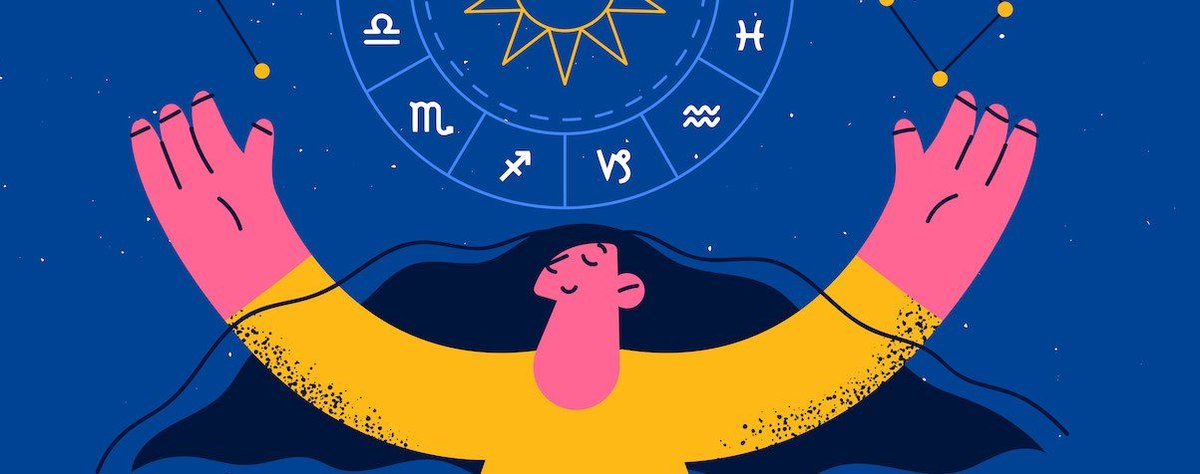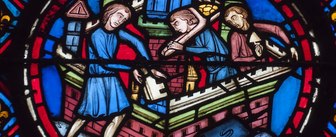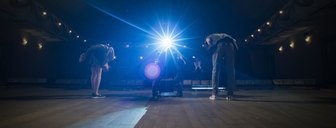While a growing share of U.S. adults are religiously unaffiliated, there is one belief that appears to unite a significant share of them: astrology. YouGov’s latest poll finds that a little more than one-quarter of Americans (27%) – including 37% of adults under 30 – say that they believe in astrology, or that the position of the stars and planets influences people’s lives. About half of Americans (51%) say they don't believe in astrology and 22% are unsure.
Younger American adults are more likely to say they believe in astrology than older Americans are. While 37% of adults under 30 say they believe in it, less than half as many Americans 65 and older say they do (16%). Women (30%) are slightly more likely to say they believe in astrology than men are (25%). White Americans (25%) are somewhat less likely to say the stars and planets predict behavior than Black (31%) and Hispanic (32%) Americans are to say so.
Among Americans with a high-school degree or less, 29% say they believe in astrology, which is a similar share as among Americans with only a college degree (28%). People with an advanced degree (24%) are somewhat less likely to say they believe. Americans living in the Northeast (32%) and West (29%) are somewhat more likely to express a belief in astrology than people in the South and Midwest are.
Among the religious groups examined, Catholics (31%), agnostics (30%), and people with no particular religion (28%) are most likely to say they’re believers in astrology, while Protestants (22%) and Jewish Americans (22%) are somewhat less likely to believe. Of all the demographic groups we looked at, atheists are the least likely to say they believe that the stars and planets influence behavior (only 10% say they believe this).
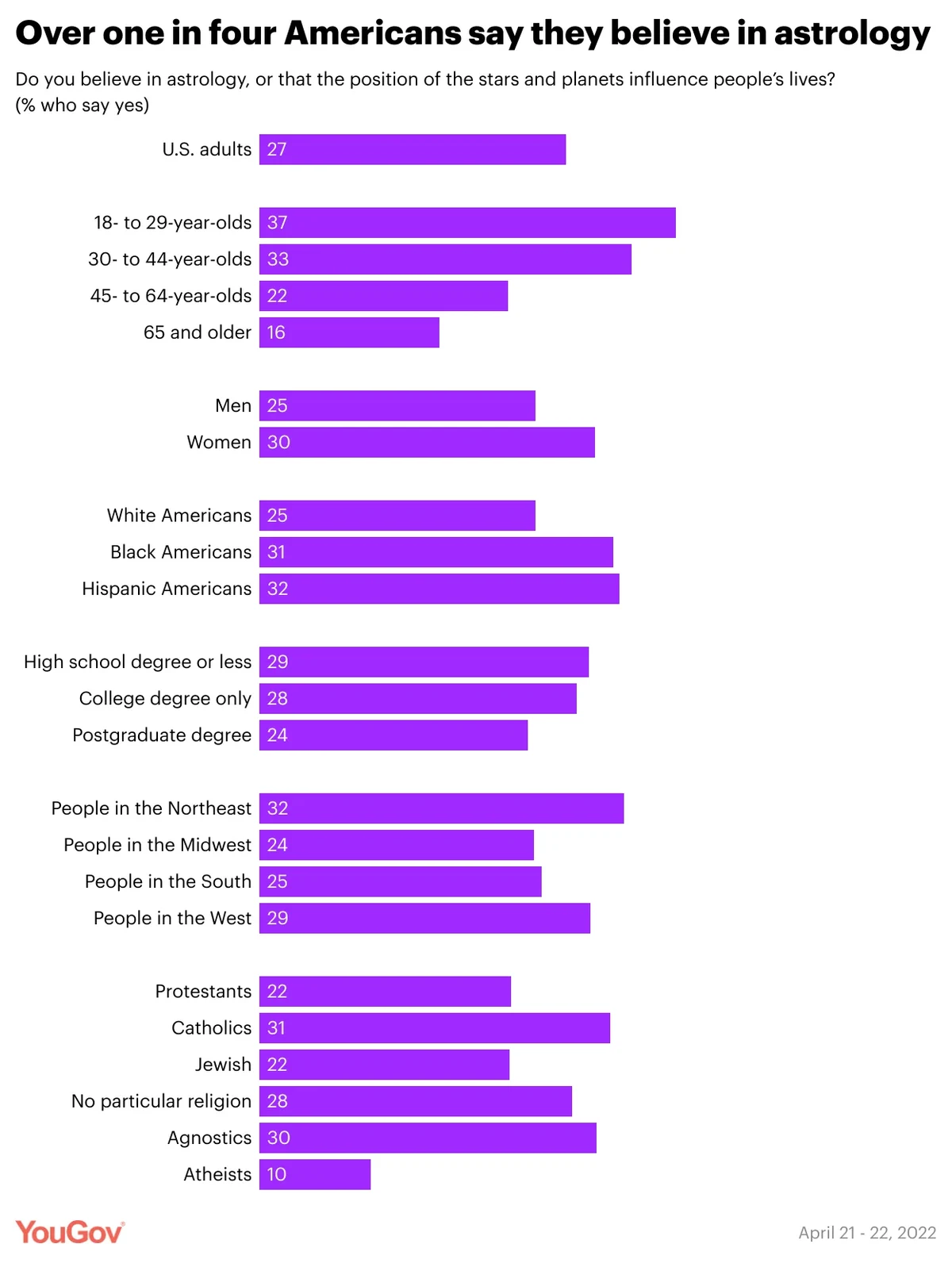
We also find that the gender gap flips with age: men under 45 are slightly more likely to believe in astrology than women the same age are (38% vs. 32%), while older women are much more likely to believe than older men are. Women between the ages of 45 and 64 are twice as likely as their male counterparts to say they believe (29% vs. 15%), and women 65 and older are more than twice as likely to say they believe as men in the same age group (23% vs. 9%).
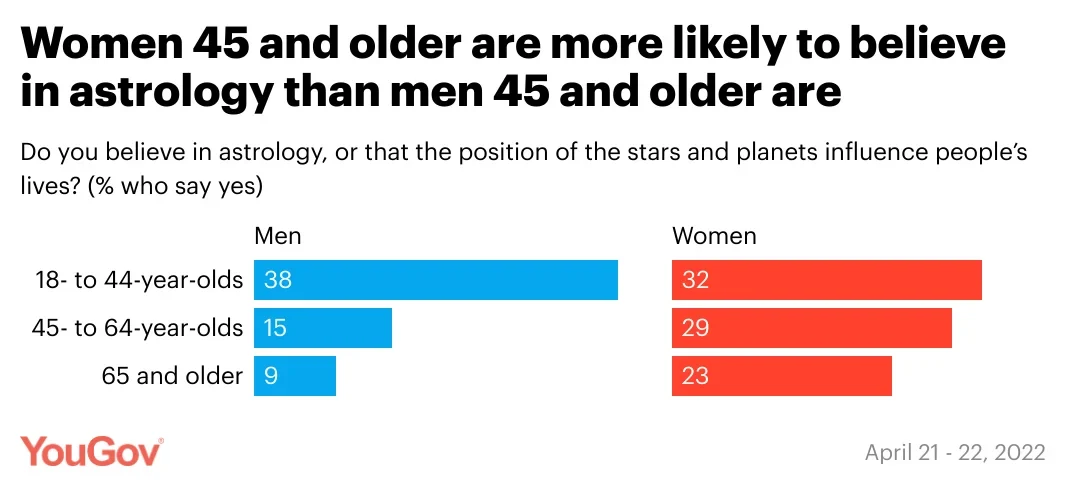
When asked if they know what their astrological sign is and offered the 12 signs as options, 90% of Americans select one of them, while 10% say they aren't sure what their sign is. Even though adults under 30 are more likely to say they believe in astrology, people in this age group are also less likely to say they know their astrological sign – 82% say they know their sign, compared to 94% of people 45 and older. Women (92%) are more likely than men (87%) to know their sign and Democrats (95%) are more likely than Republicans (86%) to know it.
While tens of millions of Americans are themselves believers in astrology, how open are Americans to voting for a political candidate who is a believer? Most often, people say that knowing that a politician deeply believes in astrology would make no difference to them (40% say this). Only 7% say this knowledge would make them more likely to vote for the candidate, while 34% say it would make them less likely to vote for the candidate.
Among people who believe in astrology, an equal share say a politician deeply believing in it would make them more (21%) or less (22%) likely to vote for them. Almost half (46%) say it would make no difference. Over half (54%) of people who don’t believe in astrology say that a candidate expressing belief in it would make them less likely to vote for the candidate (just 2% say it would make them more likely to and 34% say it would make no difference). Republicans (48%) are more likely than Democrats (35%) to say that a candidate’s belief in astrology would make them less inclined to vote for the person, while Democrats are more likely than Republicans to say it would make no difference (43% vs. 35%).
See the toplines and crosstabs from this poll:
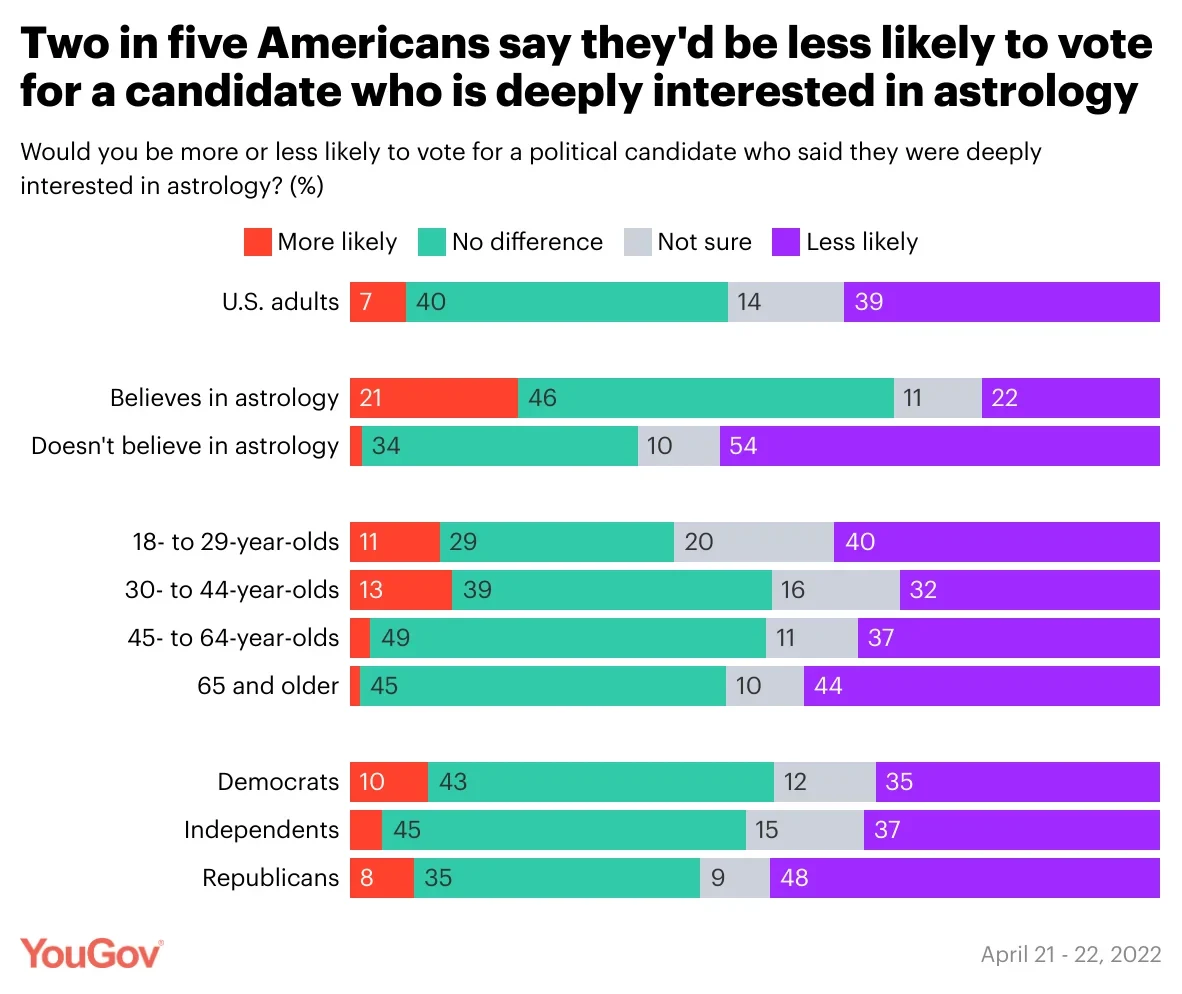
- Do you believe in astrology, or that the position of the stars and planets influence people’s lives?
- Do you know your astrological sign?
- Would you be more or less likely to vote for a political candidate who said they were deeply interested in astrology?
Methodology: This Daily Agenda survey was conducted by YouGov using a nationally representative sample of 3,472 U.S. adults interviewed online on April 21 - 22, 2022. The samples were weighted to be representative of the U.S. population, based on gender, age, race, education, U.S. census region, and political party.
Image: Getty
